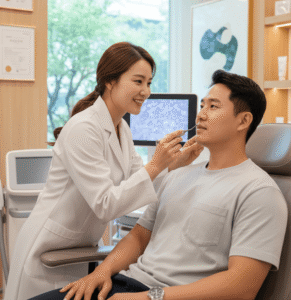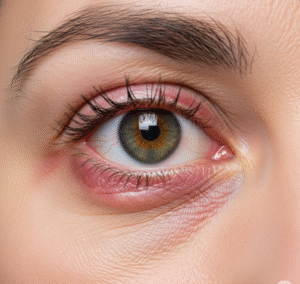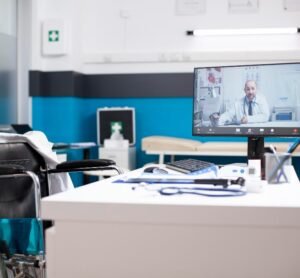Overview
Sexual problems in men are common and can affect physical, emotional, and relational well-being. These issues range from difficulties with sexual desire and arousal to problems with ejaculation or orgasm. In Korea, increasing awareness, advanced diagnostic facilities, and discreet treatment options have made it easier for men to seek help and recover sexual health through both medical and psychological approaches.
What are Sexual Problems in Men?
Sexual problems in men refer to any physical or psychological condition that prevents a man from achieving satisfaction during sexual activity. Common male sexual dysfunctions include:
- Erectile Dysfunction (ED)
- Premature Ejaculation (PE)
- Low Libido (reduced sexual desire)
- Delayed Ejaculation
- Anorgasmia (inability to orgasm)
- Peyronie’s Disease (penile curvature during erection)
- Performance anxiety
These conditions can be temporary or chronic and often overlap with mental health issues such as stress, anxiety, and depression.
Symptoms
- Inability to get or maintain an erection
- Ejaculation that occurs too quickly or is delayed
- Lack of interest in sexual activity
- Pain during erection or ejaculation
- Difficulty achieving orgasm despite arousal
- Reduced penile sensitivity
- Emotional distress or relationship problems related to sex
Causes
Sexual dysfunction in men can have physical, psychological, or combined causes, including:
- Chronic health conditions (diabetes, hypertension, cardiovascular disease)
- Neurological disorders (Parkinson’s, multiple sclerosis)
- Hormonal imbalances (low testosterone)
- Medications (antidepressants, antihypertensives)
- Substance abuse (alcohol, tobacco, drugs)
- Stress, anxiety, or depression
- Trauma or past abuse
- Lack of intimacy or relationship conflict
Risk Factors
- Aging
- Obesity or sedentary lifestyle
- Smoking or heavy alcohol use
- Mental health conditions
- Poor communication in relationship
- Lack of sleep
- Uncontrolled medical conditions like diabetes or high cholesterol
Complications
- Emotional stress, guilt, or frustration
- Loss of intimacy with partner
- Relationship strain or separation
- Decreased self-esteem and confidence
- Infertility (in cases related to ejaculation disorders)
- Depression or anxiety
Prevention
- Regular exercise to improve blood flow and reduce stress
- Balanced diet rich in antioxidants and healthy fats
- Avoid smoking and alcohol abuse
- Manage chronic illnesses like diabetes or hypertension
- Open communication with partner
- Regular checkups for hormonal and vascular health
- Stress-reducing practices (e.g., mindfulness, therapy)
Treatment Options in Korea
Korea offers comprehensive and private care for male sexual problems through urology, endocrinology, psychiatry, and andrology specialists.
1. Diagnosis
- Physical examination
- Blood tests (testosterone, cholesterol, glucose)
- Penile Doppler ultrasound
- Psychological evaluation
- Nocturnal penile tumescence test (for ED causes)
2. Treatment Approaches
- Medications:
- PDE5 inhibitors (e.g., Viagra, Cialis) for ED
- SSRIs or dapoxetine for premature ejaculation
- Hormone therapy for testosterone deficiency
- Psychotherapy and Counseling:
- For performance anxiety, trauma, relationship issues
- Cognitive Behavioral Therapy (CBT) and sex therapy
- Lifestyle Changes:
- Weight loss, quitting smoking, reducing alcohol intake
- Medical Devices:
- Vacuum erection devices (VEDs)
- Penile implants (for severe ED)
- Surgical Interventions:
- Vascular surgery (rare)
- Surgery for Peyronie’s disease
3. Where to Get Treatment in Korea
- Urology Departments in major hospitals like:
- Seoul National University Hospital
- Samsung Medical Center
- Severance Hospital (Yonsei)
- Specialized men’s health clinics in Seoul, Busan, and Incheon
- Private international clinics with English-speaking staff
- Medihere, Chaum Clinic, Leaders Clinic
4. Cost and Accessibility
- Many treatments are covered under the National Health Insurance (NHI)
- Private and discreet care available for foreigners
- Online consultations or telemedicine available for follow-up













